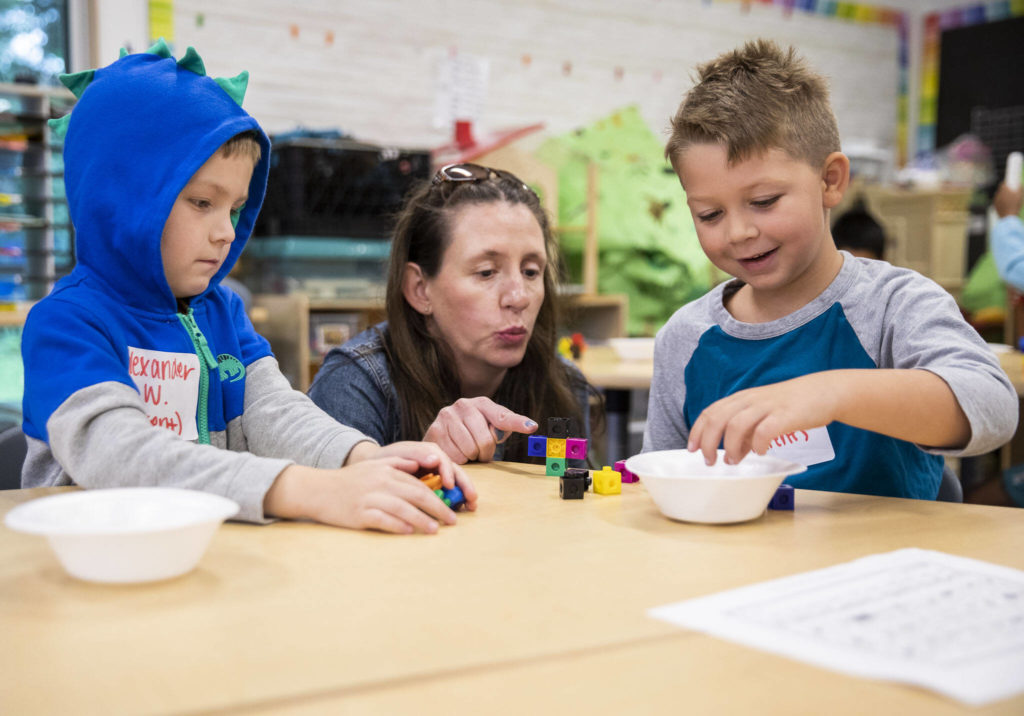Innovative storytelling workshops that inspire students in Private School
Everything About Elementary School: Essential Facts and Enhancing Experiences for Young Learners
Quality institution plays a critical duty fit young students' futures. It includes vital academic subjects and nurtures social skills via structured interactions. Furthermore, extracurricular activities offer opportunities for imagination and teamwork. Parental participation even more improves this foundation, sustaining youngsters in their scholastic trips. As these elements link, they create a detailed academic experience. However, what specific strategies can teachers and parents use to optimize this development?

Recognizing the Elementary School Curriculum
As trainees start their elementary school trip, they come across a curriculum developed to develop foundational abilities and understanding throughout different topics. This curriculum usually includes core areas such as mathematics, language arts, scientific research, and social research studies. Each subject is structured to grow important thinking, creative thinking, and problem-solving capacities, vital for future scholastic success.
Language arts focus on analysis, creating, and communication abilities, promoting students' capability to share themselves plainly. Math presents basic concepts, including enhancement, subtraction, and later, reproduction and department, preparing for more complex analytic. Scientific research encourages query and exploration, igniting curiosity regarding the environment, while social researches imparts an understanding of neighborhood and multiculturalism.
Along with core topics, the curriculum usually includes arts and physical education and learning, supplying a well-rounded educational experience that promotes both intellectual and physical development. Subsequently, elementary school works as a vital platform for long-lasting discovering.

The Framework of Elementary School Education And Learning
While quality institution education and learning varies by region and institution, it normally follows an organized structure that promotes progressive learning. Normally, grade school incorporates an array of qualities, commonly from kindergarten through 6th or fifth quality, depending upon the instructional system. Each grade level represents specific developmental milestones, with educational program developed to build on anticipation.
Courses are generally arranged into core topics, including maths, language arts, scientific research, and social studies, making certain that students obtain a versatile education and learning. Instruction typically integrates straight training with hands-on activities, cultivating engagement and essential thinking.

Evaluation approaches vary however generally include tests, tests, and jobs to assess pupil understanding. Additionally, teachers commonly team up to develop interdisciplinary systems, enhancing the finding out experience. On the whole, the framework of elementary school education and learning intends to grow fundamental skills, prepare pupils for future scholastic challenges, and promote a love for finding out that prolongs beyond the classroom.
Social Abilities Development in Early Learners
Elementary school education and learning not only focuses on scholastic skills yet likewise plays a substantial role in the growth of social skills amongst early learners. During these formative years, kids take part in different tasks that urge communication, cooperation, and interaction with peers. Group jobs and cooperative learning settings supply possibilities for youngsters to exercise sharing, bargaining, and solving conflicts.
Moreover, structured play cultivates crucial skills like empathy and understanding, as kids discover to acknowledge and react to the sensations of others. Through led social interactions, teachers aid pupils create crucial Get the facts listening and conversational skills. As youngsters navigate friendships and team characteristics, they obtain self-confidence in their social capabilities.
The Function of After-school Activities
Extracurricular activities play a significant duty in improving the educational experience of quality school pupils by offering methods for individual development past the class. These activities allow pupils to discover rate of interests and talents, fostering creativity and self-expression. Participation in sporting activities, songs, art, and clubs grows teamwork, management skills, and a feeling of belonging.
Involving in such activities advertises physical health and health, motivating trainees to preserve an energetic way of living. Extracurricular programs likewise act as a system for pupils to develop More Help friendships and establish social skills, which are essential for their general advancement
As trainees browse their rate of interests beyond academics, they gain valuable experiences that add to their self-confidence and strength. Ultimately, these activities play a critical role in shaping well-rounded people, preparing them for future challenges both in and out of the classroom.
Supporting Knowing With Adult Participation
Adult participation considerably improves the instructional journey of elementary school trainees, as it cultivates an encouraging environment that enhances learning. Engaged parents add to their children's scholastic success by participating in college events, assisting with research, and preserving open communication with instructors. Private Grade School Peoria. This involvement not only boosts students' inspiration however also grows a feeling of belonging and self-worth
Research study suggests that youngsters whose parents are actively included tend to have higher qualities, better attendance, and improved actions in college. Furthermore, adult engagement encourages the advancement of important life abilities, such as time administration and obligation.
Schools can facilitate this involvement by organizing workshops, supplying resources, and encouraging routine responses. By developing partnerships between moms and dads and teachers, elementary school can guarantee an extensive technique to trainee development. Eventually, parental involvement acts as a foundation for fostering a favorable academic experience, benefiting both pupils and the college community as a whole.
Often Asked Questions
What Are the Typical Elementary School Hours for Trainees?
Typical grade institution hours for trainees normally vary from 8:00 AM to 3:00 PM, varying by district. Numerous schools integrate a lunch break and recess, making certain pupils have time see this site to charge throughout the day.
Exactly How Do Grade Schools Address Diverse Learning Requirements?
Quality schools resolve diverse learning requirements with differentiated guideline, customized lesson plans, and support solutions, making sure all students get ideal resources. Educators work together with experts to produce comprehensive atmospheres that promote specific growth and involvement.
What Is the Duty of Technology in Elementary School Education?
Technology in quality school education enhances learning via interactive tools, customized finding out experiences, and accessibility to substantial sources. It cultivates cooperation amongst instructors and trainees, preparing kids for a technology-driven future while supporting diverse educational demands.
Exactly How Can Moms And Dads Aid With Research Properly?
Parents can help with research properly by creating an organized environment, encouraging self-reliance, offering resources, and using assistance without directly providing responses. Communication with teachers likewise enhances understanding of expectations and advertises scholastic success.
What Are Typical Obstacles Encountered by Elementary School Students?
Usual obstacles encountered by elementary school trainees include difficulty with time management, understanding complicated principles, keeping focus during lessons, maneuvering social characteristics, and stabilizing academic responsibilities with after-school activities, every one of which can influence their general performance.
As pupils begin their quality school trip, they experience a curriculum designed to develop fundamental abilities and understanding throughout different topics. Commonly, quality institution incorporates an array of qualities, often from kindergarten with fifth or sixth quality, depending on the academic system. Extracurricular tasks play a considerable role in boosting the educational experience of quality college pupils by offering methods for individual growth beyond the class. Parental participation considerably improves the academic journey of quality college students, as it promotes an encouraging environment that enhances discovering. By developing collaborations in between educators and parents, quality schools can guarantee a detailed strategy to trainee advancement.